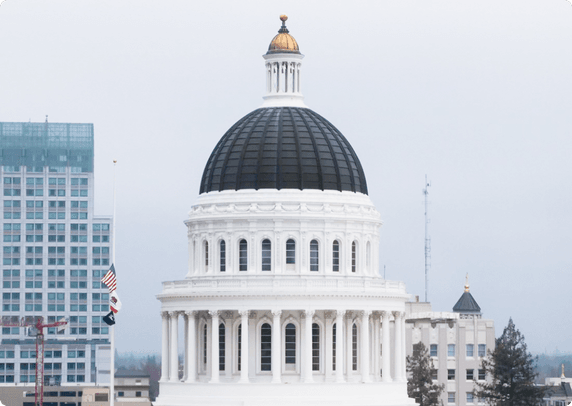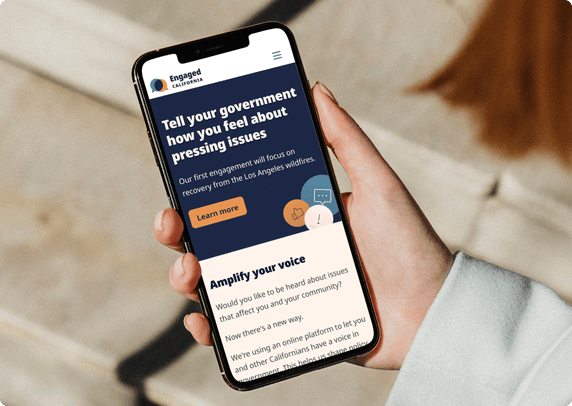Streamlining procurement

The Department of General Services is making it easier to get work done. They doubled departments’ authorities to make agreements with each other to $2 million. They also made it easier than ever for vendors to join the Software Licensing Program. This reduces one-off contracts.
Generative AI: helping government work smarter

Imagine being able to spot a traffic jam before it forms. Or simplify a complicated policy into plain language. That’s what Generative AI is helping California do — every day.
This isn’t tech for tech’s sake. It’s innovative tools that make government work better for real people — like using AI to map where super commuters lose hours in traffic, so the state can fix it faster.
GenAI helps public agencies:
- Understand and predict where services are breaking down
- Make faster decisions using better data
6,000 vacant positions eliminated

This saves approximately $1 billion over two years — without cutting essential programs.
The state is also reducing travel, printing, and modernizing IT systems — delivering $3.5 billion more in taxpayer savings. They’re just a few of the operational efficiencies making California leaner.
Smarter tech contracts

The Department of Technology (CDT) is getting discounts on the technology the state needs to get the job done.
They partnered with the Employment Development Department (EDD) to consolidate their Salesforce licenses. The new single contract improved the state's negotiating power. EDD saved $2.3 million (10%) compared to their old contracts.
CDT also pooled 8 departments in one contract with Cisco to save $12 million (12.4%) on hardware.
A better government starts with better conversations

Engaged California is creating new ways for Californians to shape the decisions that affect their lives. It invites people across the state to share ideas, offer feedback, and join respectful, solution-focused conversations.
It’s powered by the latest technology and built on transparency and inclusion.
What it looks like in action:
In less than 2 months, 7,800 people signed up to take part in Engaged CA.
- Easy-to-join online discussions on major policy topics
- Plain-language materials to break down complex issues
- Real-time feedback loops that connect your voice to government action
Less paper, more savings

The California Department of Corrections and Rehabilitation (CDCR) is using less paper. They moved forms and workbooks online, only printing what’s required. This saved more than $563,000.
